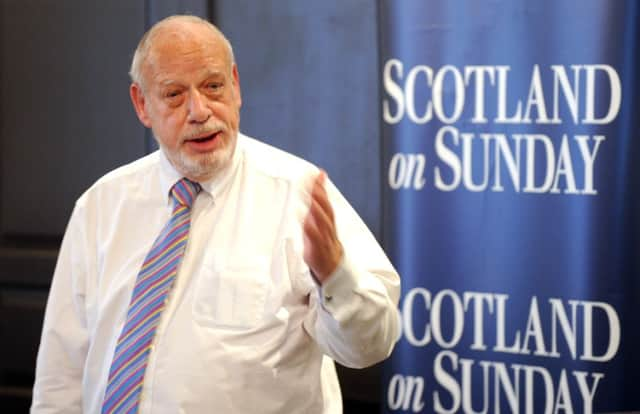Bill Jamieson: Seeing profit in ‘year of illusion’


You can go a long way in markets just standing still. For our intrepid contestants in this year’s IFA of the Year competition, what a year of illusion 2014 has been.
Markets might have given the surface appearance of becalmed and serene stability. After all there seems to have been little change between the start of the year and the end, the FTSE-100 index of leading UK shares entered the year just a touch below 6,600 points. Now, as we approach Christmas and the year-end, the index is around 6,700 – how uneventful.
Advertisement
Hide AdAdvertisement
Hide AdLook again, for this has been a year of peaks and troughs. The FTSE-100 swung up towards 6,800 at the end of January, swooned to 6,450 in February, marched back above 6,800 in early March, grazed a peak of 6,878 in September, then plunged to 6,195 amid fears of rising interest rates and global slowdown in October.
Barely had the stock market pundits warned of the onset of a long bear market than the market turned round again and promptly marched back up to 6,720.
Where in all this, you might well ask, is the underlying direction of travel? Is the market poised to break new high ground, or is it tracing a walk across a chain of peaks, prior to an almighty plunge?
As if this was not enough, there have been big shocks below this turbulent surface. For years, shares in food retailing giants such as Tesco and Sainsbury featured prominently in most UK portfolios. They offered great dividend stability while each year brought unbroken advances in like-for-like sales and operating profits. Food retailers seemed on a permanent pathway to growth. What could go wrong?
Then came the disruptive entry of discounters Aldi and Lidl, a perceptible swing in shopping habits away from the big, weekly, edge-of-town shop towards convenience stores – and accounting mayhem at Tesco.
Shares in the food retailing leader almost halved this year – from 341p to 168p – before stabilising at 186p. And the dividend has been slashed. Shares in Sainsbury, meanwhile, have tumbled almost 40 per cent.
For those who sought to take refuge in the energy and commodity sector, long thought to have defensive attractions, 2014 has been a dreadful year. A 30 per cent plus plunge in the oil price sent shares in those two FTSE- 100 stalwarts, BP and Royal Dutch Shell, slithering to multi-year lows. BP has lost 20 per cent, while commodity prices have fallen back due to falling demand from China and other growth-hungry economies.
Looking at sector performance, investment trusts specialising in commodities and natural resources are down 17.5 per cent on a 12-month view. And those brave IFA contestants who reckoned on a recovery in mainland European shares have been hit by near standstill economic growth in the region and uncertainties over central bank policy. Trusts in the Europe specialist sector are down by an average of 12 per cent, while Emerging Europe, unsettled by the Ukrainian crisis and other geo-political tensions, are down by 23 per cent.
Advertisement
Hide AdAdvertisement
Hide AdOn the upside, there have also been big surprises. Property sector trusts – thought to have entered a long period of underperformance – have enjoyed an average 18 per cent rise.
Less surprisingly, Asia Pacific has been the best performing sector, with an average rise of 39.4 per cent. Funds and trusts specialising in the bio-tech sector have run a close second with an average gain of 38 per cent.
We had hoped with this year’s IFA of the Year competition to de-clutter the lifestyle and investment needs of our hypothetical couple and give the IFAs a clear, uncomplicated run. But what we have done is to reveal just how variable, complicated and utterly unpredictable investment can be.
The classic wisdom of diversification comes to the fore, as does the discipline of feeding small amounts into the market over a period of time, thus minimising the risks of a badly timed entry and gaining the advantage of pound cost averaging.
As it turned out, our IFAs opted for a wide spread of unit and investment trust investments, with a core portfolio of cautious holdings to satisfy David Mackay’s defensive preference and a range of small company, overseas and emerging market trusts for his wife, Fiona.
But even the most defensive investment portfolios have been stress tested of late – and this in a year that appeared on the surface to be so calm and uneventful. What a much longer up-hill-and-down-dale journey it has proved.
SUBSCRIBE TO THE SCOTSMAN’S BUSINESS BRIEFING